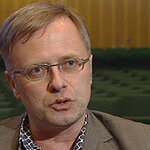
This from the BBC:
“Germany has been named as the most supportive country for overseas students, in an international league table.”
If you are a student looking for international experience, you should go to Germany. Why the hell go to the US and pay huge fees for worse education, mostly confined in the culturally impoverished, numbing atmosphere of US cities with one of the few exciting aspects being the fear of getting shot at? (I was shot at in LA!)
Well, the language of course! Guess what – the new reason for studying in Germany instead of the US or UK is: German lecturers speak better…





